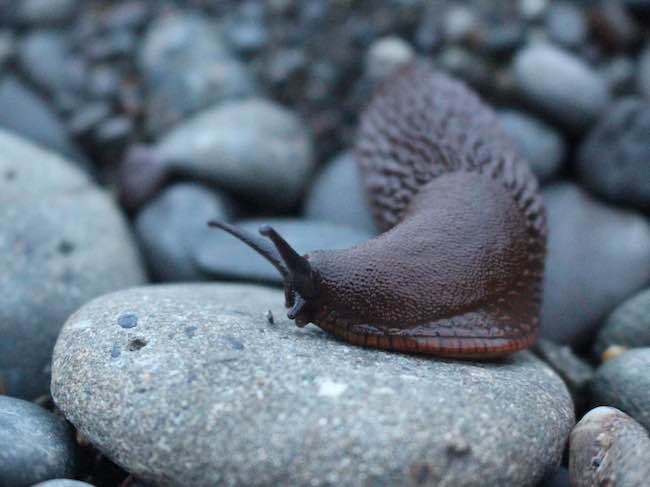Controlling slugs with nematodes and the importance of having damp soil

Controlling slugs with nematodes is an eco-friendly and natural method that can be effective in managing slug populations in gardens and agricultural settings. Here’s an overview of how it works and why damp soil is crucial for its success:
- Nematodes as Slug Predators:
- Beneficial Nematodes: Nematodes used for slug control are typically microscopic, parasitic organisms called entomopathogenic nematodes. They are beneficial because they do not harm plants, animals, or humans.
- Parasitic Relationship: These nematodes have a parasitic relationship with slugs. They enter the slug’s body through natural openings (like spiracles or mouthparts) and release bacteria that kill the slug. The nematodes then feed on the decomposing slug.
- Damp Soil Requirement:
- Active Movement: Entomopathogenic nematodes are aquatic organisms, and they need a film of water to move through the soil. In dry or overly compacted soil, nematodes will struggle to move effectively, reducing their chances of encountering slugs.
- Slug Activity: Slugs are most active during damp and humid conditions. Dry soil is less attractive to slugs, as it can lead to desiccation (drying out), making them more vulnerable to predators and environmental stress.
- Nematode Survival: Damp soil not only facilitates the movement of nematodes but also helps maintain their survival. Without sufficient moisture, nematodes may become desiccated and die
- Application Tips:
- Timing: Apply nematodes when slugs are active, which is typically during the spring and the autumn or during periods of high humidity.
- Soil Preparation: Before applying nematodes, it’s beneficial to water the soil thoroughly. This ensures that the soil is adequately damp to support nematode movement.
- Application Technique: Nematodes are often mixed with water and applied using a sprayer. It’s important to follow the specific instructions provided by the manufacturer.
- Post-Application Care: After application, it’s advisable to water the area again to ensure the nematodes reach the target zone in the soil.
- Benefits of Using Nematodes:
- Environmentally Friendly: Entomopathogenic nematodes are non-toxic to humans, pets, and beneficial insects. They target specific pests, like slugs, without harming other organisms.
- Reduced Chemical Use: Using nematodes reduces reliance on chemical pesticides, which can have negative effects on the environment and non-target species.
- Long-lasting Effect: Nematodes can persist in the soil for some time, providing ongoing control of slug populations.
In summary, using nematodes to control slugs is an effective and environmentally friendly method, but it’s important to ensure that the soil is adequately damp for the nematodes to be successful in their predatory activities. Additionally, proper application techniques and timing are essential for maximising the effectiveness of this biological control method.
In summary, using nematodes to control slugs is an effective and environmentally friendly method, but it’s important to ensure that the soil is adequately damp for the nematodes to be successful in their predatory activities. Additionally, proper application techniques and timing are essential for maximising the effectiveness of this biological control method.